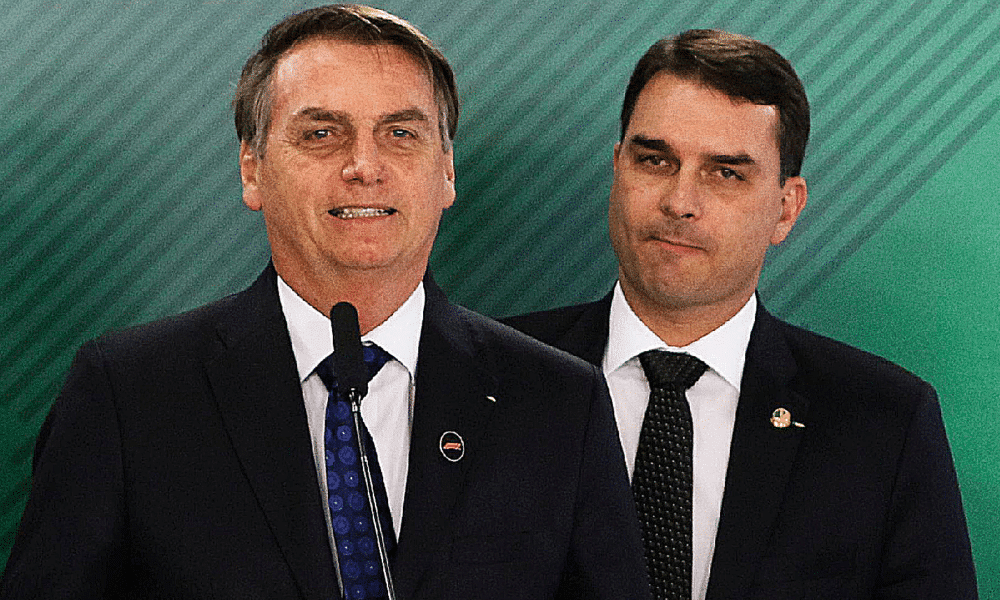RIO DE JANEIRO, BRAZIL – The image of President Jair Bolsonaro remains virtually unscathed, despite the turbulence surrounding his administration. This is reflected in the latest survey by the consulting firm Atlas Político, released on Wednesday, which shows a month marked by the arrest of driver Fabrício Queiroz, suspected of being the operator of the splitting scheme involving Senator Flávio Bolsonaro in Rio de Janeiro; raids by the Federal Police against Bolsonarists and the failed appointment of Carlos Alberto Decotelli, who, exposed for cheating on his résumé, survived only five days in the Ministry of Education.

The survey also points to a deterioration in Sérgio Moro and Paulo Guedes’ popularity, who joined the government with super-minister status and took different courses during the worsening political crisis amid the coronavirus pandemic.
According to the online survey, which interviewed 2,000 people between June 27th and 30th, with a sample that reflects Brazil’s adult population, approval for the President’s performance stabilized at 32 percent, after dropping by five percentage points between April and May, when disapproval hovered between 65 and 64 percent. The rejection of his administration, still disapproved by the majority, has dropped from 58 to 56 percent, against 25 percent approval.
For political scientist Andrei Roman, who developed the Atlas Político survey, it shows that Bolsonaro may have managed to contain the popularity bloodbath that befell him with the traumatic resignation of the ex-Minister of Justice and Public Safety, compounded by his own erratic conduct in controlling the pandemic. “Moro’s departure was a much more cataclysmic event for the President’s image than Queiroz’s arrest or the embarrassment with Decotelli,” Roman said. “Once he overcomes this blow, other crises may wear him down, but not to the same degree as Moro.”
The researcher considers that the political scenario in Brazil, previously polarized between Bolsonaro’s supporters and the left-wing, has acquired a third relevant power with the rise of the center-right, embodied by Bolsonarism dissidents, which is likely to affect not only the President’s assessment, but also the politicos that surround him or emerge as potential competitors in the 2022 election.
This is the case with Moro, who, after his popularity climbed (from 54 to 57 percent) when he stepped down from the government, is now suffering successive approval declines, reaching his lowest approval rating (37 percent) since these polling records began. From April to June, the percentage of those who assess him negatively increased from 31 to 50 percent.
“With the electorate divided into three poles, it’s only natural that Sérgio Moro’s popularity has dropped rapidly, particularly due to his loss of support from many bolsonarists,” Roman explains.
Paulo Guedes, the Minister of Economy, was also affected by the split between Moro and Bolsonaro. Since April, when, unlike Moro, he decided to remain in government and reached his lowest disapproval rate (38 percent) in a year, his rejection rate rose by more than ten percentage points, from 38 to 49 percent. “Guedes stood in the middle of this feud between Morists and Bolsonarists. Still, he remains an anchor of popularity for the government, with greater approval than the President,” says the Atlas Político’s executive director.
Among the political leaders mentioned in the survey, Paulo Guedes (38 percent) and Moro (37 percent) only lose in approval to Luiz Henrique Mandetta (50 percent). However, the ex-Minister of Health also saw his popularity drop in recent months, which broke a record in April (63 percent). For the first time, the survey assessed the image of Vice President Hamilton Mourão. With a lower rejection than Bolsonaro (46 vs 64 percent), he is behind only Mandetta, Guedes and Moro among the most approved leaders (33 percent), and one percentage point above the President.
The most popular left-wing leader continues to be ex-president Lula (28 percent), followed by Fernando Haddad (24 percent) and Ciro Gomes (23 percent), candidates defeated by Bolsonaro in the last presidential election.
The survey also assessed the Brazilians’ opinion on the hypothetical establishment of a military dictatorship in the country. According to the survey, 87 percent of the population is against the return of an exceptional regime and seven percent are in favor. In November 2019, support for the military dictatorship stood at 14 percent, against 75 percent who opposed the idea. Support for Bolsonaro’s impeachment also lost ground, but continues to be advocated by a majority of respondents (from 58 to 55 percent).
With Moro distant from the spotlight and a more moderate stance before other powers, the President gained strength by withstanding the loss of his most popular minister, as Andrei Roman notes. “There seems to be a pacification of the bolsonarist electorate with the Moro issue, increasingly distant. Which suggests it will take a much greater shock than his departure to erode the President’s image.”
Regarding the coronavirus pandemic, 77 percent of respondents fear contracting the disease and 70 percent are more concerned with people who may die from Covid-19 than with the economic impact of the crisis, while 73 percent say they agree with the social isolation measures imposed by mayors and governors. However, 48 percent said they left home the day before the survey.
Source: El País

